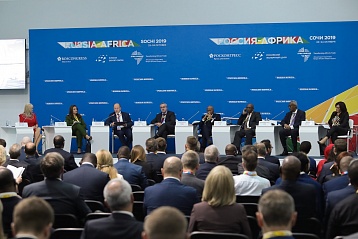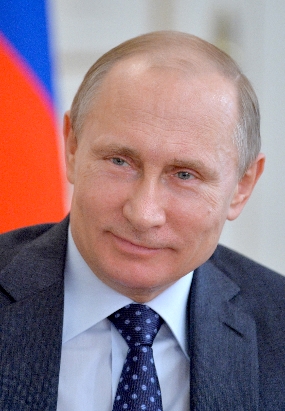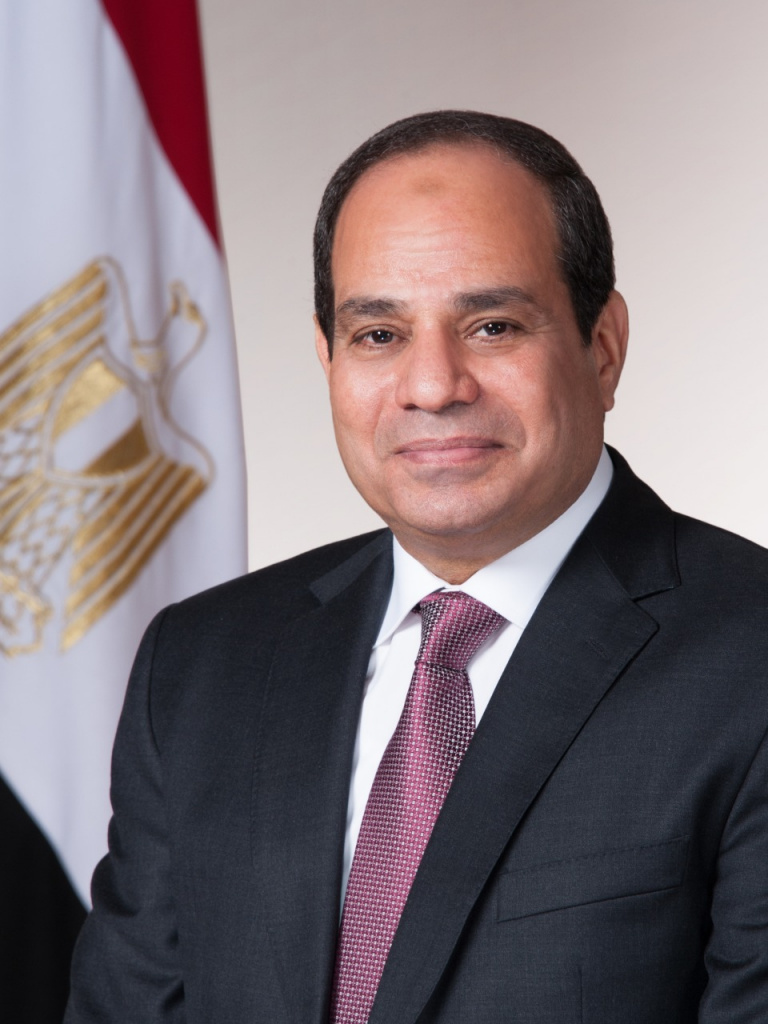Transport Infrastructure on the African Continent: Opportunities to Implement Joint Projects

KEY CONCLUSIONS
Africa’s dynamic development carries ample potential for Russian investment
“The entire continent is developing rapidly, developing aggressively, and it provides incredible partnership and investment opportunities,” – H.E. Amani Abou-Zeid, Commissioner for Infrastructure and Energy, African Union Commission.
“Africa provides unique opportunities for railroad development <…> Mineral deposits: out of 9 most rapidly developing countries 5 are in Africa <…> most rapidly growing cities – it is Africa <…> Unique tourist potential – it is Africa,” – Alexander Misharin, First Deputy Chief Executive Officer, Russian Railways.
Russian companies are ready to share technologies with their African partners
“Apart from technology and project solutions we are ready to provide financial tools. Those include state guarantees, private-public partnerships, and various types of concessions. These are the mechanisms that will allow to introduce large-scale projects,” – Alexander Misharin, First Deputy Chief Executive Officer, Russian Railways.
“In addition to the wealth of experience and railway competences, we can suggest automobile industry development solutions. We are a convenient partner when it comes to passenger transportation. We have solutions that fit the budget of any country. We are ready to develop small businesses and come up with mobile solutions,” – Leonid Dolgov, Export Sales Director, GAZ Group
PROBLEMS
Underdeveloped highway network in Africa
“19% of all goods and services are moved across Africa by car. If an accident occurs, everything becomes congested. 75% of roads are connected, yet there is no network. There is no infrastructure that support intermodal transportation. There are regional railroad networks, yet the transcontinental network does not exist,” – John Edward Tambi, Advisor to the President of the Republic of Sierra Leone.
“In Africa, transportation share alone is 15% [of the price of goods – Ed.] because the transport is either not there at all, or it is inefficient,” – H.E. Amani Abou-Zeid, Commissioner for Infrastructure and Energy, African Union Commission.
High tax and customs barriers
“Border crossing procedures must be harmonized (between countries – Ed.) so that the transport can travel fast,” – H.E. Amani Abou-Zeid, Commissioner for Infrastructure and Energy, African Union Commission.
“We should not forget about the barriers <…> such as tariffs, customs, documents. We should resolve all these issues,” – Aboubaker Omar Hadi, Chairman, Djibouti Ports and Free Zones Authority.
SOLUTIONS
Creating cooperation solutions
“We are creating transnational holdings to expand our area of interest. Transnet International Holdings SOC Ltd is ready to initiate a partnership with Russian Railways,” – Petrus Fusi, Сhief Executive, Transnet International Holdings SOC Ltd.
“It is time to act, to create work groups that would include representatives from Russia and the African countries <…> to foster partnerships,” – Bronwyn Nielsen, Founder, Chief Executive Officer, Nielsen Media and Associates; Editor-in-Chief (2013–2017), CNBC Africa.
Complex approach to developing the infrastructure
“The free trade zone in Africa must become a reality. All member countries of the African Union design their own general transport plans. Yet, one of the key goals is building a railroad that links all the capitals of the African countries. We started the feasibility studies for this project and some stages are already getting implemented. We are talking about revamping the current infrastructure and developing our ports, that should become economic growth centres and attract various industries. We are talking about creating multimodal networks,” – H.E. Amani Abou-Zeid, Commissioner for Infrastructure and Energy, African Union Commission.
“Our goal is building a railroad from Djibouti through Sudan to South Africa. This road is going to go through 5 or 6 countries and will provide the shortest possible travel time from the Atlantic to the Pacific,” – Aboubaker Omar Hadi, Chairman, Djibouti Ports and Free Zones Authority.
“[Aerial – Ed.] travel volume is growing. In 2013, Maghrib transport ministers signed a few [agreements – Ed.], including the coordination agreement on service and repairs support for the aging aircrafts. We are also talking about new port infrastructure that could link Maghrib ports together,” – Basma Soudani, Director of Political Affairs, Information and Cabinet, Arab Maghreb Union
Attracting local investors
“There 3 important business development drivers in Africa: act like an investor, invest in long-term projects, help modernize the system; design services; sign agreements with local investors, develop business locally. It means, that the rolling stock for Africa should be designed and built in Africa,” – Martin Vaujour, Chief Executive Officer, TMH International.
“Private capital should act like an investor and compliment the state companies. We would like to find the proper balance between private companies and the state sector,” – Martin Vaujour, Chief Executive Officer, TMH International.
Professional training
“Our greatest resource is our people. Teaching and creating human capital that will make these projects happen – it is a paramount aspect,” – H.E. Amani Abou-Zeid, Commissioner for Infrastructure and Energy, African Union Commission.
“Sustainable functioning of the highway networks in Africa is impossible with localizing, without attracting local professionals. Every country needs local specialists for design and R&D,” – Martin Vaujour, Chief Executive Officer, TMH International.
For more information, visit the Roscongress Information and Analytical System at roscongress.org


